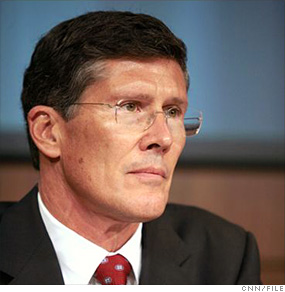
If there was such a thing as Public Enemy No. 1 on Wall Street, Thain would still be the man.
The words most commonly associated with the disgraced former Merrill Lynch CEO, "broke" and "financial crisis," helped him earn Zeta's lowest rating for positive chatter, just 27%, after he was slated to head global banking, securities, and wealth management at Bank of America following its merger with Merrill Lynch.
In January 2009, when it turned out Merrill's losses were much deeper than expected, BofA CEO Ken Lewis is said to have forced Thain to resign. Meanwhile, New York Attorney General Andrew Cuomo opened an investigation into $4 million in bonuses Thain pushed through prior to the close of the merger.
The nail in the coffin, though, was likely the now-famous reports that Thain had spent $1.22 million in early 2008 to redecorate his office at Merrill.
NEXT: Worst: Vikram Pandit
Last updated December 30 2009: 2:06 PM ET
How it was done: Zeta's technology mines the online media landscape -- including millions of blogs, message boards, and social media posts -- and then uses algorithms to measure both the volume and tone of conversations about a given subject -- in this case, the CEOs of Fortune 500 companies. Rankings are based on the percentage of total chatter about a given CEO that is qualified as positive.
